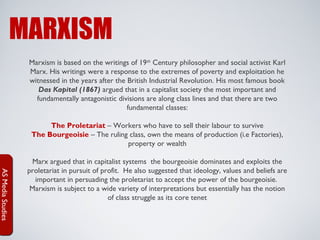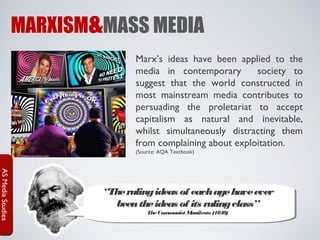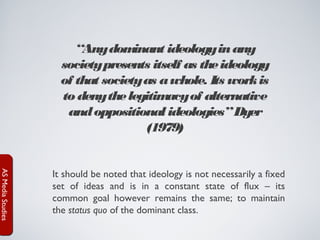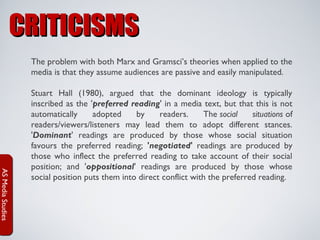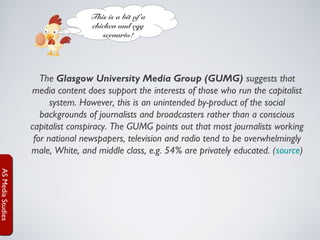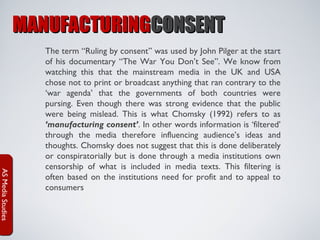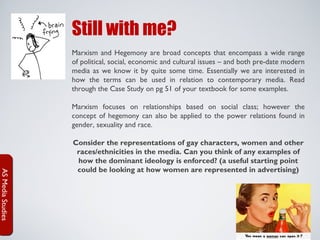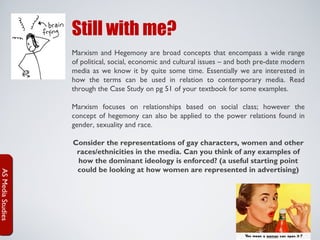Karl Marx developed Marxism in response to the poverty and inequality he witnessed during the Industrial Revolution. Marx argued that society is divided along class lines between the bourgeoisie, who own the means of production, and the proletariat, who must sell their labor. He claimed the bourgeoisie exploit and dominate the proletariat for profit. Antonio Gramsci expanded on Marxism by developing the concept of cultural hegemony to explain how the ruling class maintains power through manipulating culture and ideology to present their views as common sense. Marxist theories have been applied to analyze how mainstream media persuades audiences to accept capitalism and distracts them from inequality, though some argue audiences are not entirely passive.

